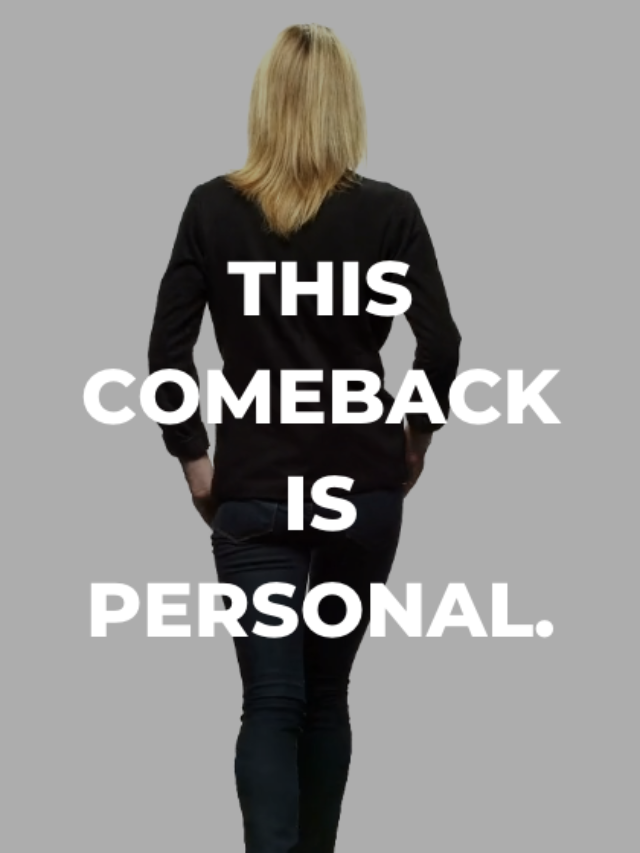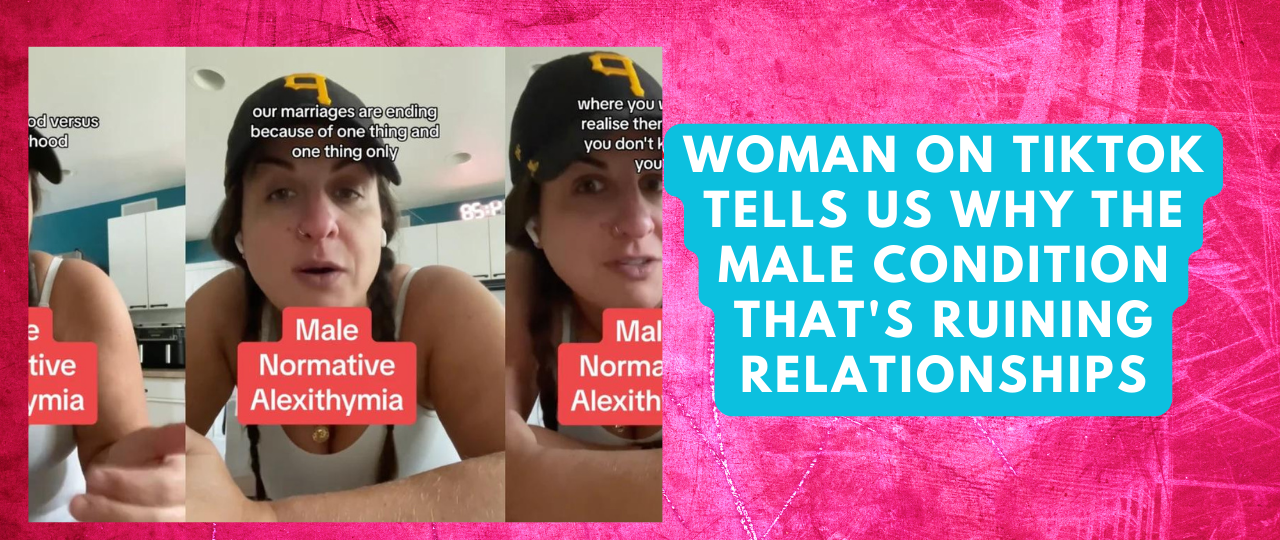Marriage as declined by 60% since the 1970s, according to a news article on CNBC. While there are a slew of reasons why, including the changing economy, a content creator named Katie Hanlon revealed the less talked-about cause that could be the reason for many ruined relationships. She explained that 'normative male alexithymia' leads to the end of many relationships and marriages.
"Our marriages are ending because of one thing and one thing only, that is normative male alexithymia," Hanlon declared in her video. She explained that the term alexithymia is a psychological term for "not being able to name or talk about your emotions."
She continued, saying that it doesn't necessarily mean that men don't feel or have any emotions, but that they just don't have the emotional intelligence or awareness to talk openly about their feelings, along with how to garner empathy from other people about certain emotions.
@thekatiehanlon Every woman longs to be loved by the men in her life. 💔#unmaskingautism #latediagnosedautistic #cptsd #audhd #misogyny #misogynykills #matriarchynow #patriarchykills #intersectionalfeminism #malenormativealexithymia #mentalloadofmotherhood #fairplay #coupleshumor #marriagehumor #genderequity #divisionofhouseholdlabor #mensemotions #fortheloveofmen #thecenterwillnothold #inyourlove #couplestherapy #parentinghumor #daddyissues #fatherwound #divinemasculine #divinefeminineenergy #matriarchyrising ♬ original sound - I Cry A Lot
Unfortunately, normative male alexithymia doesn't just go away.
Instead, is simply passed onto the women who are in partnerships with men who have not been able to break free from the restraints of holding in their emotions all of the time.
"We deal with your emotions. The lack of ability you have to regulate yourself," Hanlon insisted. "Our households live and die by your insecurities, what we're allowed to talk about and what we're not allowed to talk about. All the couple's humor in the world does not take away from the fact that you're not interested in us, you're not interested in contributing in a way that doesn't work for you."
Hanlon acknowledged that while many wives may not leave their husbands over this, she knows for a fact that there are women all around the world who routinely cry themselves to sleep and are in emotional agony over their marriages, and what they know will never change.
"You have to be a sociopath for that not to bother you," Hanlon claimed. "Go to whatever therapy, read whatever book you have to read to make that change."
She also issued a PSA to the men out there who think of themselves as the "good ones," and challenged them to actively make this a priority. She explained that all of these conversations we have about the lack of labor division, motherhood versus fatherhood, and the emotional labor many women have to carry in these marriages with men, won't be fixed until men get to the root of their emotional needs.
There's a large number of men who admit they have no idea how to share their feelings with other people.According to data acquired by the men's health charity Movember, which surveyed 4,000 men across the U.S., Canada, the U.K., and Australia about their perceptions of masculinity and expressing emotions, 58% of men feel like they're expected to be "emotionally strong and to show no weakness," and 38% of men have avoided talking to others about their feelings to avoid appearing "unmanly."
For American men in particular, 53% say they feel pressure to be "manly." More than 29% say they've purposefully not shown emotion or held back from crying in front of others to preserve their masculinity, and 22% say they're "unlikely" to talk to someone even if they're dealing with a problem they're having trouble coping with.
These statistics are staggering and concerning for many reasons, but ultimately all lead back to patriarchal standards and outdated gender norms. From a young age, boys are often socialized to conform to certain behaviors that align with what is defined as traditional masculinity. This includes not showing vulnerability, being self-reliant, and avoiding "feminine" qualities like sensitivity or emotional expression.
As Hanlon mentioned in her video, this way of thinking has a plethora of repercussions, especially for men who are looking to be in long-term relationships. Suppressing emotions and refusing to be vulnerable will do nothing but hinder the opportunity to connect with not only other people but yourself as well.
We should be encouraging men, starting from a young age, that there is nothing wrong with being emotionally aware and breaking free from these harmful constraints of what it means to be a "man" and what qualifies as being "manly enough."
The truth is, the best thing men can do for themselves is to realize that things won't get better for them until they learn that true masculinity means taking care of your emotional well-being.




















